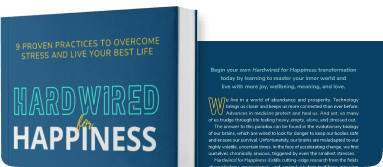Boosting Overall Productivity with Better Sleep Management with Dr. Els van der Helm

Would you get into a plane if you knew that the pilot only slept for six hours the night before? Sleep is essential for peak performance in today’s knowledge-based economy. Just like we wouldn’t let a pilot fly without enough rest, we shouldn’t expect our top talent to operate at their best without adequate sleep.
In this article, we’ll explore how better sleep management boosts overall productivity. Sleep Neuroscientist Dr. Els van der Helm shares her research-backed insights on the critical importance of sleep for our personal well-being, leadership effectiveness, and overall organizational health.
“Sleep is when our brain is getting rid of all the toxic chemicals that are a byproducts of the natural processes in our brain; and if we don’t get enough, they don’t leave.”
– Ashish Kothari
Your ability to stay alert and awake, and to problem solve, have new insights, and come up with creative solutions—all of that suffers when we don’t get good sleep. The scary part is that we often don’t realize how much our performance is slipping. There have been many studies saying people’s performance decreases day after day of just losing two hours of sleep a night.
The emotional and physical damage of lack of sleep
Sleep deprivation takes a serious toll on our overall well-being, particularly in our emotional stability and social intelligence. We often think that our subjective levels of sleepiness are a good indication of how we’re doing, but in reality, it’s not.
Emotional Damages:
- Increased Emotional Reactivity: Sleep deprivation leads to increased sensitivity to negative stimuli, resulting in more intense emotional responses.
- Impaired Emotional Regulation: The prefrontal cortex of the brain, which helps regulate emotions, doesn’t function effectively without adequate sleep, making it harder to control impulsive responses to emotional situations.
- Heightened Negative Emotions: Due to disrupted sleep, individuals may experience intense dreams and wake up feeling more exhausted, contributing to negative emotional states.
- Social Withdrawal: Lack of sleep often makes individuals feel more lonely and less inclined to engage with others, affecting social interactions and personal relationships.
- Reduced Social Intelligence (SQ): Sleep deprivation impacts one’s ability to interact and communicate effectively with others, which can lead to misunderstandings and strained relationships.

When our sleep deprivation gets out of hand, it may result in insomnia. Many of us will then resort to alcohol or sleep medication to fall asleep. While these things might seem like quick fixes, they often do more harm than good in the long run. Here are some of the physical damages to consider:
Physical Damages:
- Decreased Sleep Quality: Consuming alcohol or using sleep medication may help us fall asleep faster but significantly worsens the quality of sleep. Both alcohol and some sleep medications can suppress REM sleep initially, leading to a REM rebound later in the night, which can disrupt the natural sleep cycle and impair sleep quality.
- Increased Risk of Physical Health Issues: Chronic sleep deprivation is linked to long-term health risks such as increased susceptibility to illnesses, as the body lacks sufficient time to repair and rejuvenate.
While it might seem like we can cut back on sleep without major consequences, research shows otherwise. This should remind us that we need to prioritize better sleep management as much as we do other essential business functions.
How lack of sleep affects leadership and the workplace
A study by Matthew Walker showed that after 10 days of six hours or less of sleep, your level of cognitive performance is at the same level as if you went a whole 24 hours without sleeping. This leads to a decline in cognitive functions (IQ), emotional intelligence (EQ), and social intelligence (SQ), resulting in poorer interpersonal interactions and reduced workplace morale.
A disturbing study by psychological scientists Michael S. Christian and Aleksander P.J. Ellis reveals that lack of sleep is also directly linked to increased incivility and decreased ethical behavior in the workplace. Sleep deprivation can transform an otherwise effective leader or team member into someone who struggles with empathy, decision-making, and ethical behaviors.

When we’re sleep-deprived, our ability to think clearly, control emotions, and consider the impact of our actions is compromised. That said, we can easily get into this negative spiral where we also show up at work more cranky, more irritable, and less likely thinking about the greater good of everybody around us, as if we just want to get through the day and go home.
Chronic sleep deprivation, not getting good sleep during the week, is much harder to recover from than acute sleep deprivation, like skipping an entire night or having one bad night. We may not notice the effects of sleep deprivation immediately, but every day, we get a little slower, tasks take us a little longer, and our thinking is not as creative anymore.
The evidence is clear: sleep deprivation is detrimental. Therefore, we must prioritize better sleep management.
How sleep management boost productivity and well-being
Now more than ever, organizations need to prioritize sleep and recognize its impact on employee performance and well-being. Organizations and leaders can implement several practical steps to promote sleep management:
- Leadership support – Dr. Els believes that meaningful change in sleep habits and corporate culture regarding sleep can only happen with strong support from senior leadership. When leaders prioritize sleep, it sends a message that it is valued and important for everyone in the organization.
- Flexible work schedules – Organizations should allow employees to work at times when they are most alert and productive to reduce sleep-related stress and enhance overall performance.
- Education and awareness – Educating employees about the importance of sleep and how it affects performance, mood, and health can motivate them to improve their own sleep habits. Providing resources and training on how to enhance sleep quality can also be beneficial.
- Rethink work practices – Rethink work practices that contribute to sleep deprivation.This could involve setting guidelines for the latest and earliest times for business communications, encouraging breaks, or even redesigning shift schedules to minimize disruption to natural sleep patterns.
- Encourage healthy sleep practices – Promoting practices such as limiting caffeine intake and encouraging activities that aid relaxation can help. Companies might also offer programs like mindfulness or yoga that help reduce stress and promote better sleep.
- Providing recovery opportunities – For roles that demand irregular hours, providing opportunities for recovery, such as nap rooms or allowing time for short breaks during which employees can relax or nap, can be beneficial.
Leaders who recognize and prioritize better sleep management can dramatically improve not just their own performance but also set a positive example for their teams.
“Even the lowest person in the organization can be a role model for others in how they deal with sleep. You don’t need to be a sleep expert or a leader to do this. Anybody can take the lead and inspire other people around them.”
– Dr. Els van der Helm
Conclusion
Better sleep management doesn’t require expert knowledge or a high-ranking position. You don’t need formal permission or a specific mandate to start making positive changes in sleep habits. Dr. Els and I believe that by having personal agency and autonomy in addressing sleep, anyone can be a “sleep leader,” and reap the benefits of increased productivity and well-being.
In our fast-paced world, it’s easy to overlook the importance of rest, but the truth is, sleep is the ultimate performance enhancer. In this article, Ashish Kothari and Sleep Neuroscientist Dr. Els van der Helm discuss the importance of sleep in boosting overall productivity.
Learn more about Dr. Els at her LinkedIn.
Listen to the podcast with Ashish and Dr. Els below.
Access and subscribe to all of the episodes of the Flourishing Edge Podcast here.
Visit the REWIRE Program powered up by the HAPPINESS SQUAD Community and experience your shift within your 30-day risk-free trial today. Cultivate your Self-Awareness, Gratitude, Purpose, Community, and personal growth more through the 9 Hardwired for Happiness practices. Integrate simple and proven micro-practices grounded in the science of happiness and neuroscience of habit formation in 5 minutes a day.
Make Flourishing Your Competitive Edge.


